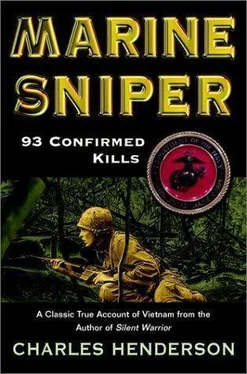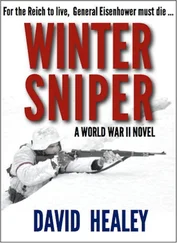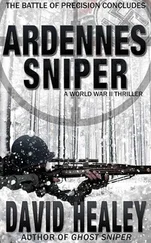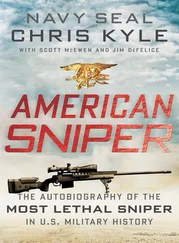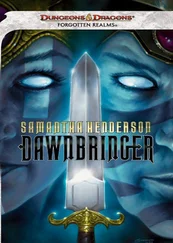They practiced for the Interservice individual and team long-range rifle championship matches.
The temperature passed 95 degrees before noon and kept climbing. Willis had the shooters hang thermometers on their scope stands as a reminder to be on guard for heat stroke. The reflected heat sent the mirages boiling and waving so strongly that many of the shooters swore in frustration as they tried to see the targets.
Behind each pair of shooters, a coach sat with his eye fixed to the back of a gigantic, gray spotting scope made by the John Unertl Company.
Ron McAbee, now a gunnery sergeant, stood behind Hathcock, watching and listening to the coach call out the number of clicks to the two men in front of him. When he would call out a wind change, both men were to react by turning the windage adjustment knobs on their scopes and calling the numbers back to the coach.
“Come three right,” he said.
“Three right,” came a single voice from the right. Hathcock lay on the left.
“Hathcock!” the coach shouted. “Three right!”
Hathcock did not move.
Willis raised on his elbow and slipped the leather rifle sling off his arm.
Hathcock’s cheek lay against the raised stock, his eye closed in position behind the scope. His jaw hung open and his breathing was faint.
The frantic Marines unstrapped Carlos from the rifle and began popping the buckles loose from his jacket. Blood dripped from its sleeves, and when they opened it, they saw his sweat shirt was soaked in blood. As the Marines exposed Hathcock’s bum-scarred body, they saw his injuries. At every bend in his body, his elbows and shoulders and upper arms and chest, the skin had split open. They could see the old splits and the new splits, and knew that every time Hathcock shot, he bled, yet ignored the pain.
“Jesus Christ! Hathcock is gonna die on us! Get him to the reloading shed,” Willis commanded. The small reloading shed at the end of the road that bisected Death Valley, just behind the 600 yard line, was the only building which had air conditioning. They took him there and soon after an ambulance arrived.
Major David Willis left Quantico in October of 1976 for a tour in Okinawa as the executive officer of 3rd Battalion, 9th Marines. And when he returned to Quantico’s ranges a year later, Carlos was still trying to pull triggers. He still had not given up. But something else had begun in that year that took his mind off competition. Something attainable.
Major E. J. Land was now the Marine Corps’ Marksmanship Coordinator, and he was based nearby at Headquarters Marine Corps. He visited Hathcock often during these new Quantico days and discussed a project that Colonel Reynolds was also involved in. It was a Marine Corps-wide sniper program.
There were independent sniper schools such as Colonel Dickman’s 4th Recon Battalion school at San Antonio, but there was no organization that put the sniper schools and the sniper programs within the regular establishment of the Marine infantry battalions.
Land did the politicking within the Headquarters Marine Corps bureaucracy. He sold them with the Hathcock legend, with the idea of what the future could hold for battalions that each had squads of snipers. He sold them an exciting new idea that had been on the battlefields since Leonardo da Vinci defended the gates of Florence by sniping with a rifle of his own design, shooting the enemy from three hundred yards away.
But never before had anyone trained snipers during peacetime. It was against the conscience of most men, especially those from Western cultures, to “back shoot,” to assassinate from a hide, to bush-whack like an outlaw. It was somehow cowardly to not give an opponent a “sporting” chance.
However, every Marine agreed that the snipers’ effect on the Viet Cong and the North Vietnamese was dramatic. There the “Counter-Sniper” program had been applauded because it fought back at the sniper problem that the enemy unleashed on the U. S. forces.
Land and his colleagues pushed the idea of the program onto the commandant. And to sell this “unsportsmanlike” concept of war fighting, Carlos Hathcock became the key ingredient. He was their example of the effectiveness of the sniper in combat—their embodied concept of who the sniper is. And he was their expert, now stationed at Quantico, ready to put all his knowledge and experience and integrity into the foundation—the lesson plans and course structure and content—of the program.
In 1977, Gen. Louis H. Wilson approved the concept and established a program in which every Marine infantry battalion would have a team of eight snipers within a special platoon of scouts and snipers called the Surveillance and Target Acquisition (STA) Platoon.
The Marine Corps Scout/Sniper Instructor School was authorized to begin operation at Quantico. It’s staff consisted of three Marines: an officer in charge, Capt. Jack Cuddy; a sniper instructor/armorer, Gunnery Sgt. Ron McAbee; and a senior sniper instructor—the Senior Sniper of the Marine Corps—Gunnery Sgt. Carlos Hathcock. The school would be part of the unit that Major Willis commanded.
In its first year of operation, the sniper school did not host any students. Hathcock and Cuddy and McAbee traveled to Canada, England, and the Netherlands, attending each nation’s sniper and scout schools. They brought home ideas and innovations, things like the Ghillie Suit—a uniform on which the sniper sews long and narrow strips of burlap in various shades of green, brown, and gray. With this piece of gear, a sniper can lie in low grass, ten feet from a victim, and not be seen.
From the start Carlos Hathcock had been perhaps the school’s greatest advantage. Men like Land and Reynolds had known they would have to find someone who could make quick decisions for them. How could they find someone who was a national long-range shooting champion, and also the best sniper around? In Hathcock they had him.
He allowed them to make rapid decisions by giving a sound opinion. They knew that if he said it would work, it most likely would, and if he saw trouble with a proposal, it more than likely would be a problem. They trusted his judgment, and that got the school off the ground.
With Hathcock’s assistance, Capt. Jack Cuddy established what became the world’s finest and most renowned school devoted to sniper training—the art and skill of solo combat. Today it provides training and expertise in areas as diverse as urban warfare, arctic and alpine skills, and counter terrorist tactics.
Hathcock gave all of himself to the program. When Major Willis reported to work at 5:30 each morning, he would look across the parking lot at the small, two-room structure that housed the sniper school. The lights would already be on.
“Carlos?” Willis called as he peeked through the door.
“Yes, Sir! Come on in! Have a cup of coffee!” Hathcock would answer. He had already been there long enough to boil the water for the coffee for the day and check through the lesson plans for his snipers.
The Marines Hathcock taught loved him, and they were in awe of him even before they met him. Captain Cuddy in his introductory presentation would tell them unbelievable stories of courage and cunning in combat—of how two men could hold off more than one hundred for five days, and of how one man could sneak inside an enemy commander’s headquarters, kill him, and get away. Naturally they cheered and whistled and grunted and clapped when Cuddy then introduced the sniper who had done all those unbelievable things—Carlos Hathcock.
But Hathcock was pushing himself harder than he had ever pushed himself before, and his body was crumbling. He had become a man obsessed. He lived by his iron will, and it was strangling his inner peace. He was losing those qualities of patience and calm, steadiness and self-control that had made him a great sniper.
Читать дальше
